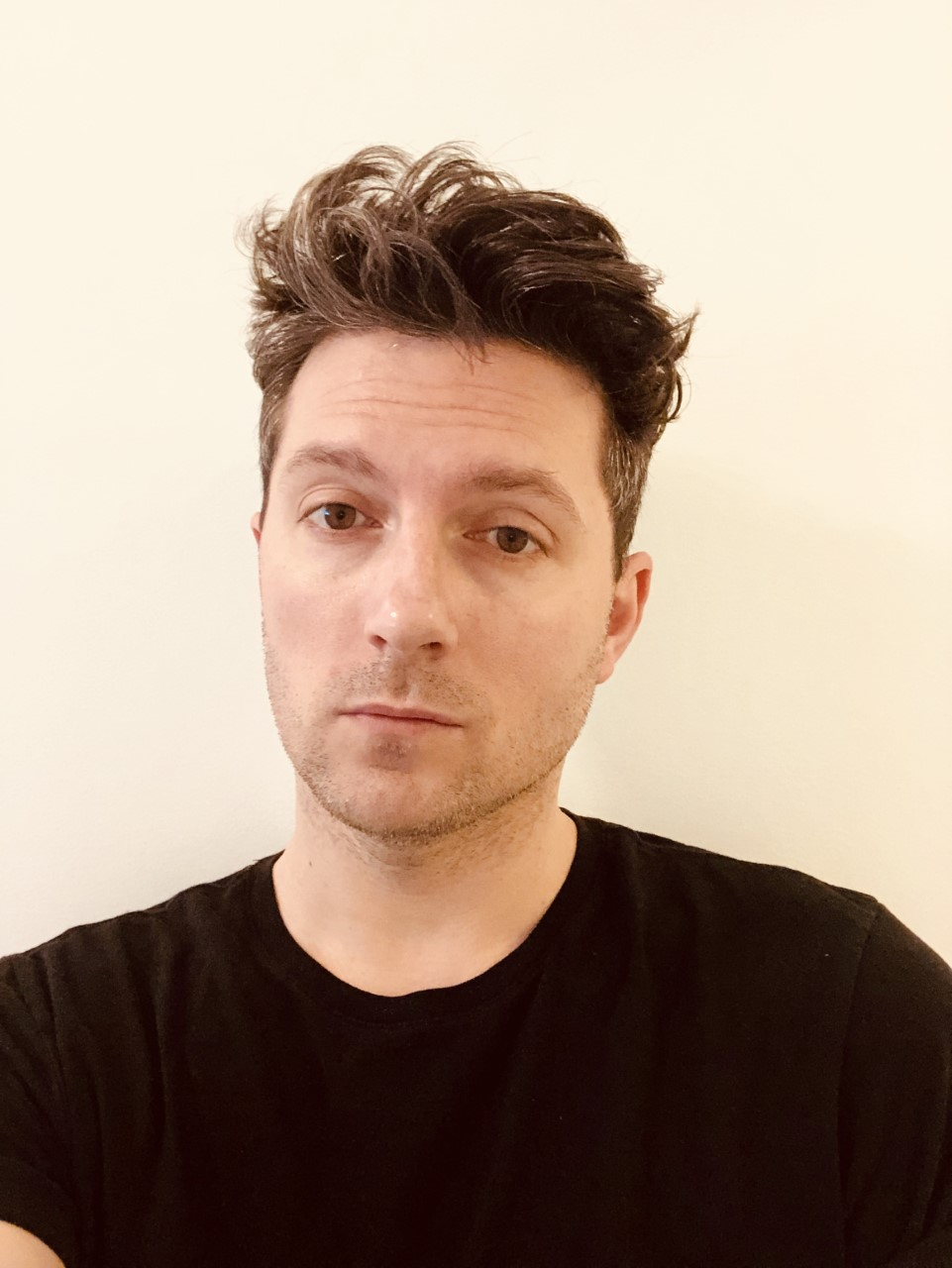
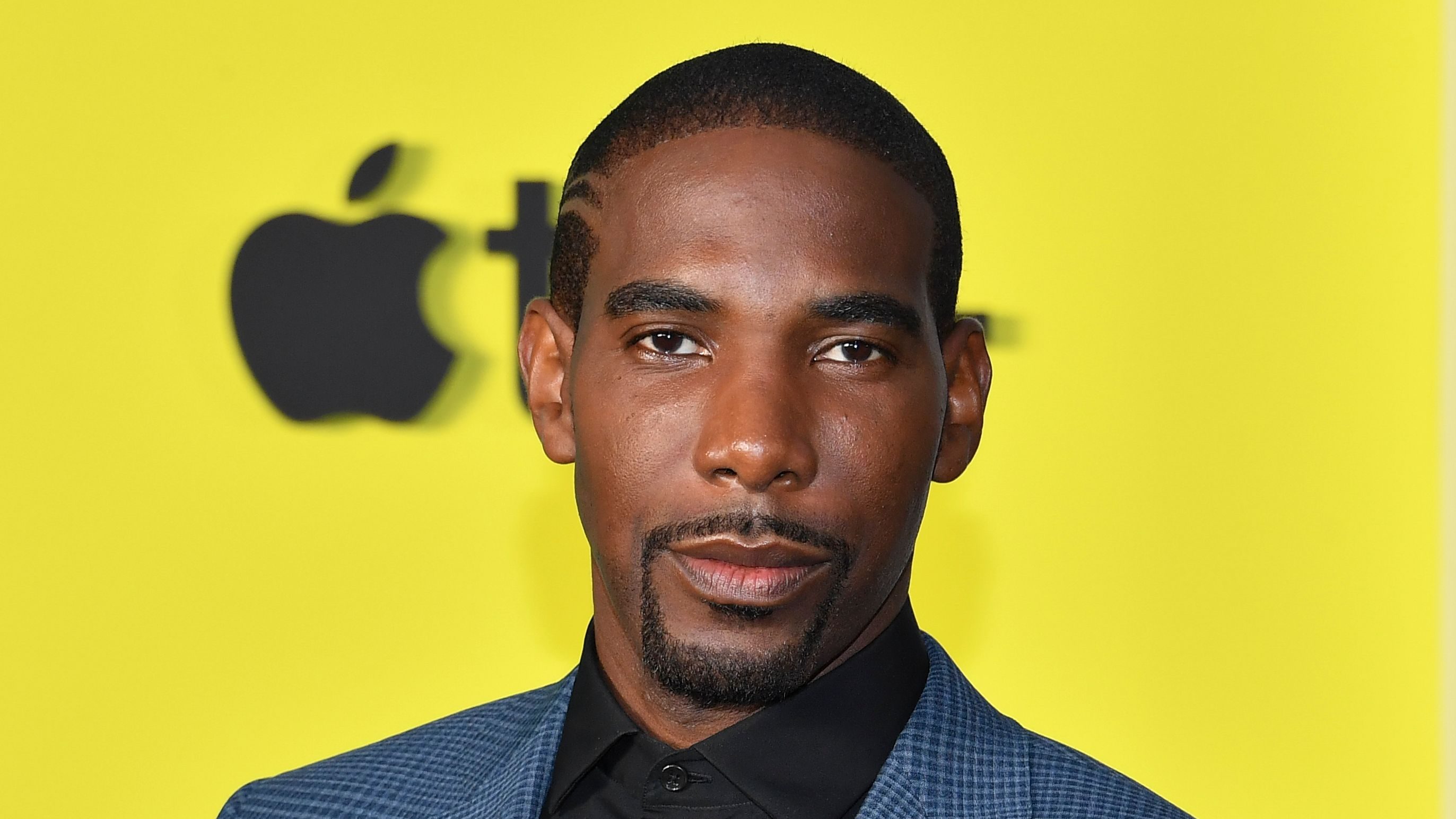
One of the most unnerving aspects of The Morning Show’s second season has been revisiting the early days of 2020. As the media elites at UBA — the fictional network that airs the fictional TMS — jockey for power and influence in the world of American infotainment, a global catastrophe is barreling toward them: the COVID-19 pandemic. One of the few characters to recognize the importance of the news coming out of China has been Daniel Henderson (Desean Terry), TMS’s weekend co-host. But even he wasn’t prepared for the reality on the ground in Wuhan, as we saw in last week’s episode.
This week’s episode, titled “Kill the Fatted Calf,” finds Daniel safely back in New York. But his experience in China has left him feeling more marginalized than ever. After years of playing by the rules on TMS, Terry tells GRAZIA, “Daniel is desperate.” And, as so often happens on The Morning Show, desperation leads to some wildly unexpected behavior…
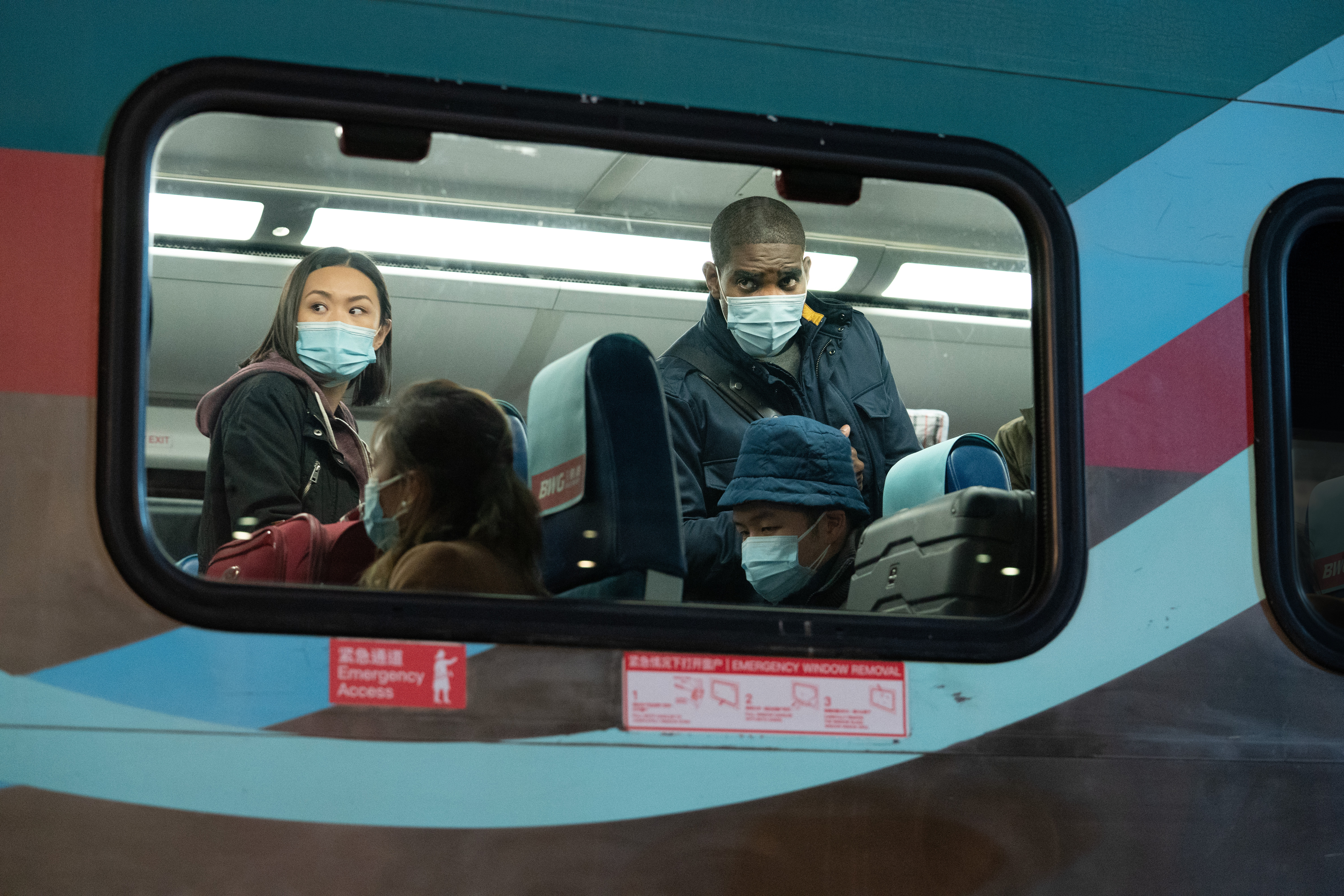
This interview contains spoilers for the fourth episode of The Morning Show’s second season.
The whole second season takes place in the first few months of 2020. What was it like revisiting this really scary time — which is probably still so fresh in so many people’s minds?
For me, when I think about COVID, I also think about the racial reckoning that was occurring. That, more so, has a tremendous imprint on me. So, the Episode 3 stuff, going into China, was surreal and sort of sci-fi-like. To be there and sort of live in that fantasy of being in Wuhan — that was exciting. It still feels so distant from how COVID impacted us.
The stuff that we start to deal with in Episode 4, now that’s the stuff that just has a weight on you. During the pandemic, there was such an unearthing of the assault on Black bodies and people of color. People recognized it and saw it. And that, in itself, was traumatizing. All of a sudden, people were engaging with you and wanted to talk about it. Like, I’m maintaining and living through it. I don’t necessarily want to talk about it at your convenience. So, that stuff was important. It means a lot to me. That was the part of it that was cathartic.
It’s wild watching all these characters disregard this cataclysm that we know is coming for them.
Yeah, very much in the way that we disregarded it when it was happening. I’m pretty proud of myself that I was a COVID warner. I was fist-bumping in January of last year. People thought I was crazy. But yeah, very much like real life, most people deny it. It’s very interesting to see that now that we have hindsight. But that’s what we did. We denied that it was happening.
In Episode 3, Daniel has to get out of Wuhan just as the city is about to go into lockdown. What kind of prep did you do for that? Did you research what it was like for people trying to get out of Wuhan in early 2020?
I didn’t feel like I needed to do a lot of research on that, because for me, the perspective was like, Wow, this is unimaginable. I am in this situation and I’ve never seen anything like this. [Daniel] didn’t want to go. He thinks it’s important, but actually Daniel wants to be covering the presidential debates. And all of a sudden, it’s like, Here I am fighting for my life!
It’s like, being unprepared is being prepared, because who could be prepared for that situation?
Exactly!
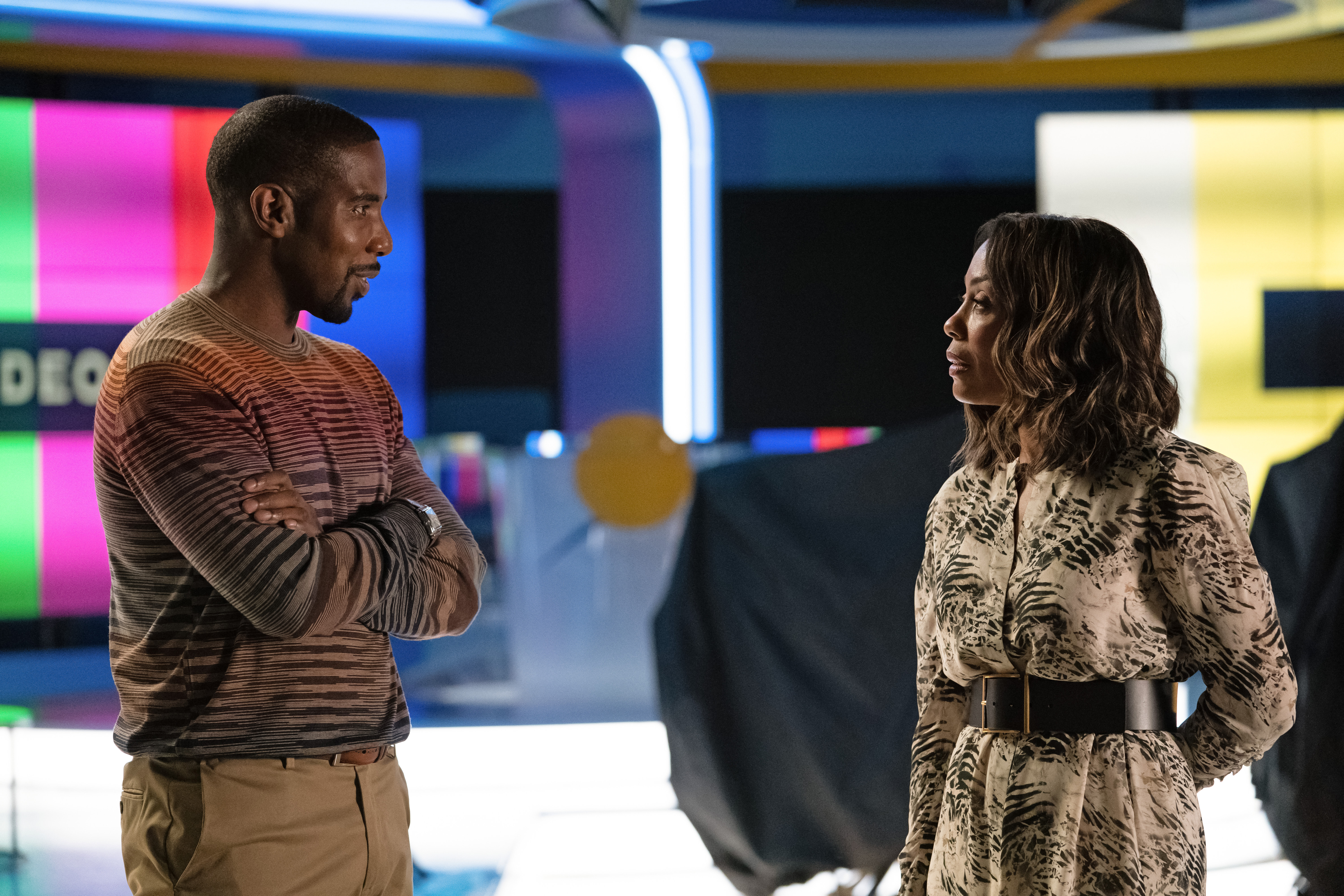
There’s this moment at the beginning of Episode 3, when Daniel is trying to get out of Wuhan, and he wants someone on his team to use what he perceives to be his UBA clout to get them on a train. But instead, the guy says his grandmother is dying in Beijing. What is it that Daniel experiences in that moment, when he realizes that it’s not his job that gets him out of this situation?
I really love those aspects of Daniel. [In that moment], he’s still trying to use his privilege and he’s completely a fish out of water. He’s comfortable using his clout. That’s learned behavior. That’s the world that he’s in. But this thing — your clout doesn’t get you anywhere. I hope what people register is that he then sees the human consequence of his privilege. To me, that’s one of the things that’s so interesting about Daniel. He’s in this very, very — let’s not mince any words — very white upper-class world. But he’s actually at an intersection. He’s a Black man at an intersection of race, sexuality, economics. So, to me, it’s fascinating to play in that world of: How do you deal with your sense of privilege and also deal with your sense of still feeling marginalized?
Mia is in a similar situation as TMS’s executive producer. But that doesn’t bring the two of them together so much as creating conflict between them. How has Daniel’s relationship with Mia shifted now that she’s running TMS?
Yeah, one of the things that was cool about this season is that we did have conversations with [executive producer] Kerry Ehrin — me and Karen [Pittman] and Kerry. Kerry is one of those showrunners who has conversations with her actors. One of the things that Kerry played with was that there is this tension between Daniel and Mia throughout the season. There are times when they’re very aligned and there are times when they’re not. And that was really important. We didn’t want to sort of create the falsity that Black people are monolithic in their thinking. It’s pretty clear that Mia and Daniel have very different approaches to this, and that created a lot of fun for me and Karen Pittman to play. It made us have a more compelling and interesting relationship, rather than, Ok, because we’re the Black people in the workplace, we agree. No. There’s a lot of divisions within the Black community. To add that additional layer, I think, for me, it’s the smarter way to go.
So, in Episode 4, we learn that Stella (Greta Lee) just doesn’t think Daniel has the “it factor.” I’m curious, is that something you factor into your performance? Like, how do you balance creating a character who is compelling to the audience, but is also slightly underwhelming to the people around him in this fictional world?
It is sort of a conflict, because on one level, Daniel is really good at his job. We know that, otherwise he wouldn’t have this success. The way I portrayed it is that I think Daniel has interference. I think structural racism causes interference for people. You have extreme moments of doubt, extreme moments of confusion when you reach a place of success. I know I can relate to it. It’s very common for you to then have imposter syndrome. At times I aim for Daniel to be a little bit off. And then sometimes I want him to be right on the money. Because I think that’s what it is. Sometimes you do get interference. Something that’s interesting for me, in terms of portraying the character is that I think that it’s a trope to go into the idea that Daniel has no interference, he doesn’t have neuroses, he’s just a higher elevated being. Everyone on the show, there are moments when they do these elevated things and there are moments when they succumb to their weakness. I think the quote-unquote “it factor” is a complete white-washed idea. It has a connection to whiteness. I think that’s something that’s used in the real world to oppress folks of color in the media. [But] it can impact you because you’re constantly being told that. It throws Daniel off at times.
Talk to me about this impromptu song Daniel performs live on air. What exactly is going through his head in that moment? He’s been trying to get a spot moderating a presidential debate. How does singing “Coming to America” get him closer to that?
I’ve thought about it many different ways. Overall, I feel like Daniel is desperate at that point. He’s tried everything else. He’s played by the rules. That’s a huge part of it; he’s played by the rules for so long, and then he sees Alex just go on this tirade and that elevates her career. So, I think part of what Daniel’s doing when he’s doing the song is that he’s saying, F*ck it! He’s seen other people do stuff like that and be rewarded for it. I think it’s a little bit of trying to duplicate what he’s seen other people get rewarded for. I don’t know so much about song choice…
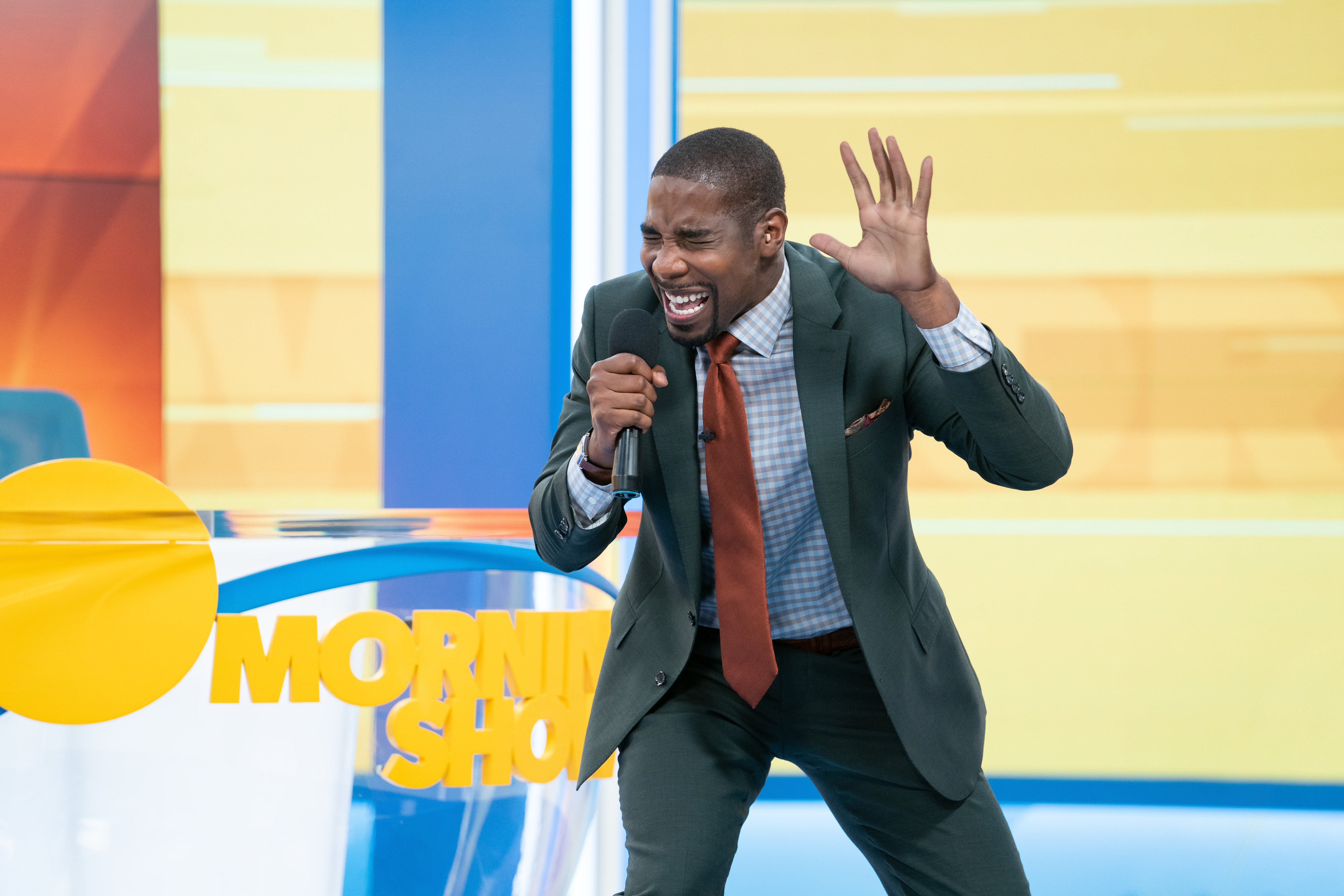
Was it always “Coming to America,” or did you try out different songs?
We did try out different songs. I will say, I can sing better than Daniel! So, rather than me get up there and, Oh wow, he’s an amazing singer, it becomes more of an acting song than a singing song. Kerry wanted to feel that he’s desperate. Here’s one of the things I used: I’m a karaoke enthusiast, and so I love even bad karaoke. If you get up here and you’re singing just bad notes, but you’re singing the song and you’re committed to it, you’ll get me. I’ll get up and cheer! I feel like that was sort of my aim with the song. There’s a cringy-ness to it, but at the end of the day, he does it and he gets people going and he’s being moved by something that the audience doesn’t quite understand.
Afterward, we see Stella exiting Daniel’s dressing room, but we don’t see the conversation they had. What went on behind that closed door? How does this all impact Daniel’s position on the show for the rest of the season?
I don’t think I can say that much about that. What I will say is, the conversation was never written. What occurs in the room is that, in that moment when he is singing the song, trying to get attention — maybe he’s like, I’ll get a bunch of social media followers and somehow that will give me momentum — I think it becomes botched. Mia [calls] him Bojangles. You’re a Black man and you’re singing this song on your platform. Why did you choose this? So, I think there’s regret about what he did.
Yeah, like you said, he’s also seen his white colleagues get away with so much, and then he tries something wild and he’s held to a different standard. It doesn’t work for him.
Yeah, and I also think Greta’s the new boss, and whatever happened in that room, it felt like, Ok, she’s not going to be the one to elevate you. And I also think in that moment there’s a bit of disappointment in Mia, because I think he expected Mia, having power, that maybe she could have done more. I think he feels pretty betrayed and isolated at the end of that episode.
So, obviously, you play a Black journalist who is frustrated with his supporting role on a show anchored by two white women. Meanwhile, in real life, you are a Black actor in a supporting role on a show anchored by two white women. Does that factor into your performance or your understanding of the character at all?
I think what influences my connection to what Daniel is talking about is the media landscape broadly. It’s systemic in the sense that it’s difficult to see people of color onscreen. It’s difficult to see people of color fully realized on screen. Some shows, there’s absolutely no representation. That’s systemic, and we’re very comfortable with that. So, for me, it’s all in the bag. Honestly, I can’t lie. That’s the media landscape we’re in, where if — and that’s a big if — if you’re showcasing characters of color, then are you showcasing a full, nuanced human being? I feel like that’s the media landscape and that’s what I’m always dealing with. So, when Daniel is fighting for representation, I’m very much connected to the representation that I’m constantly fighting for as an actor.








